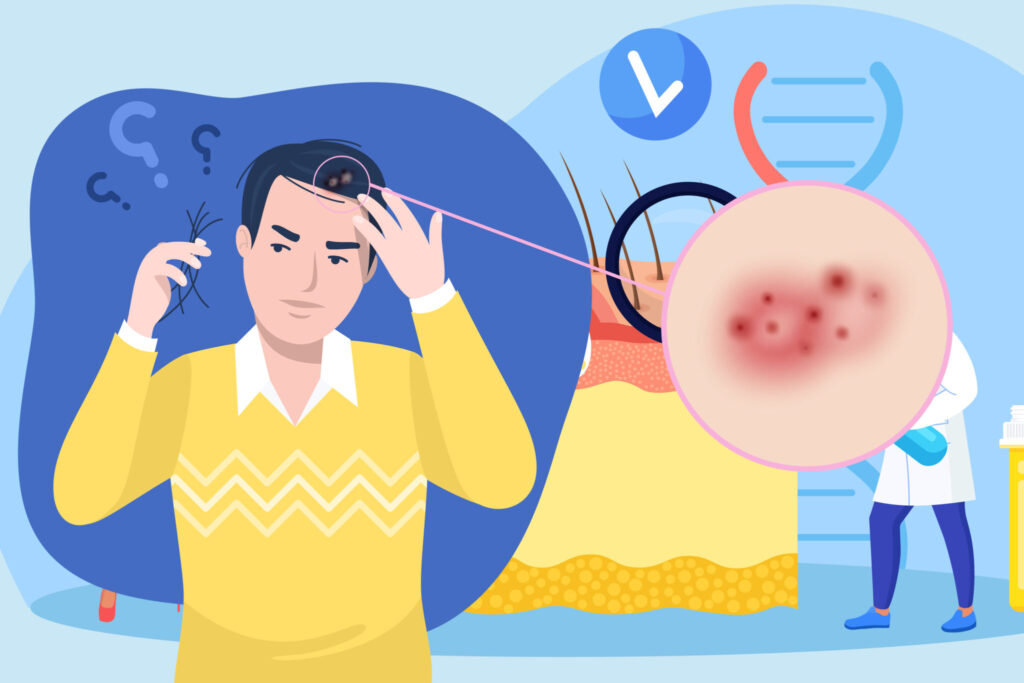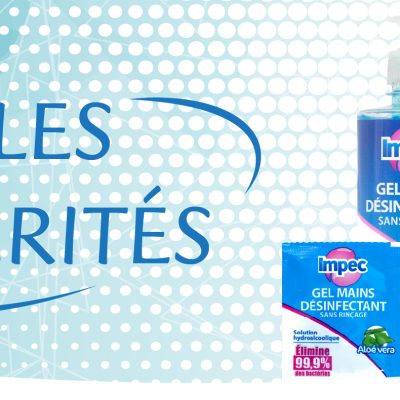Scalp eczema or seborrheic dermatitis is a condition that affects an average of 5% of the world’s population. It is manifested by the appearance of lesions in the form of oily scales, redness and itching.
This disease can be very annoying, but it is neither contagious nor fatal. It does, however, have a negative impact on the quality of life of sufferers. It is therefore essential to treat it.
To diagnose scalp eczema and benefit from appropriate treatment, you need to consult a dermatologist. There are also natural treatments you can use to cure the condition.

Nutrition
Seborrheic dermatitis is a condition that is particularly sensitive to the foods we eat on a daily basis. While certain foods exacerbate the appearance of lesions, others, on the contrary, soothe them.
It is therefore vital to limit:
- red meats,
- refined flour,
- milk and dairy products in general,
- white sugar.
To combat lesion flare-ups, choose foods with anti-inflammatory properties, such as:
- Green vegetables
- Green leaves
- Tomatoes,
- Fruits containing antioxidants, such as strawberries and blueberries,
- Foods containing vitamin E, such as avocados and wheat germ.
- Sweet potatoes
- Olive oil.
Applying natural hair masks
Applying masks to the scalp is one way of treating scalp eczema. To do this, leave the mixture on for 30 minutes at least once a week, or before each shampoo. Distribute evenly over the entire scalp, massage gently without rubbing, and rinse thoroughly with clean water.

The different natural hair masks for seborrheic dermatitis are:
- The olive oil mask consists of 2 tablespoons of pure, nourishing olive oil mixed with your usual shampoo. Leave on damp hair.
- The coconut oil mask, which you can use as an oil bath before shampooing.
- Aloe vera mask, particularly recommended for oily hair. Take the gel and mix it with 6 drops of tea tree essential oil, then apply with a brush all over the scalp. Massage in for several minutes and leave on for an hour before rinsing.
Certain essential oils have proven their effectiveness against lesions caused by seborrheic dermatitis. Their anti-inflammatory, antifungal and purifying properties are very useful in the fight against flaking and redness. For best results, we recommend using these essential oils in synergy with vegetable oil, for example, at a rate of 2 applications per day for 3 weeks. You can also add a few drops to your shampoo.
Among the most renowned are:
- Tea tree essential oil, which acts against the proliferation of fungi, bacteria and yeasts responsible for inflammation.
- Lavender aspic essential oil has analgesic properties. In practice, it reduces and soothes itching caused by the disease.
- Rose geranium essential oil, which also soothes itching. It also optimizes skin cell regeneration.
Ayurvedic powders
Ayurvedic powders can easily replace shampoo as they are just as purifying. They are recommended for treating eczema of the scalp, as they do not contain fatty substances, which can accentuate the growth of danders. You can mix them with your usual shampoo or hair lotions to help them penetrate the scalp and hair fiber.
- Brahmi powder: reputed to soothe scalp irritations. This powder also has an anti-dandruff action, very useful for removing flakes. Finally, if you have fine hair, it adds volume.
- Nagamoth powder, which regulates sebum production and consequently cleanses the scalp. It removes oily dandruff and reduces hair loss.
- Neem powder, which is rich in fatty acids. These have detoxifying, purifying and anti-inflammatory properties. The powder therefore acts on dandruff and itching.






